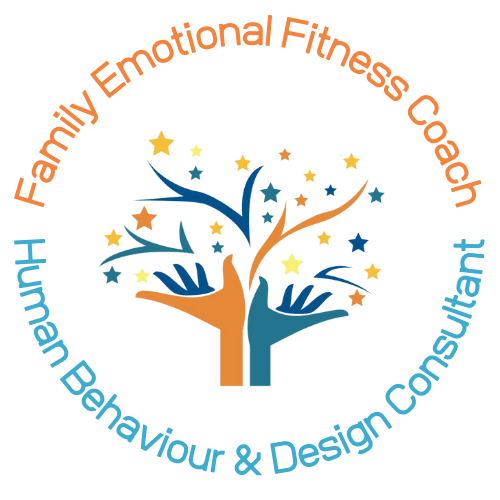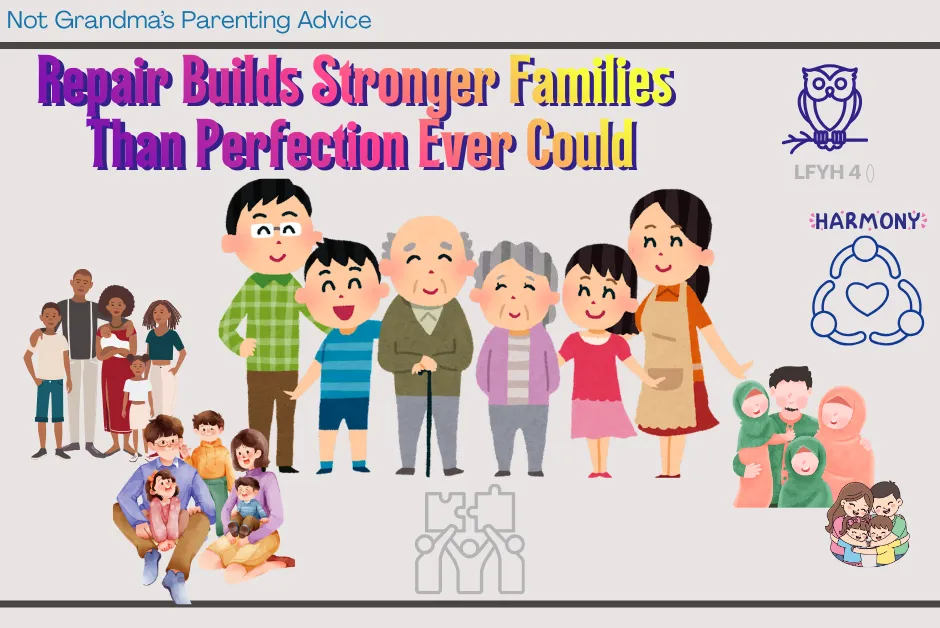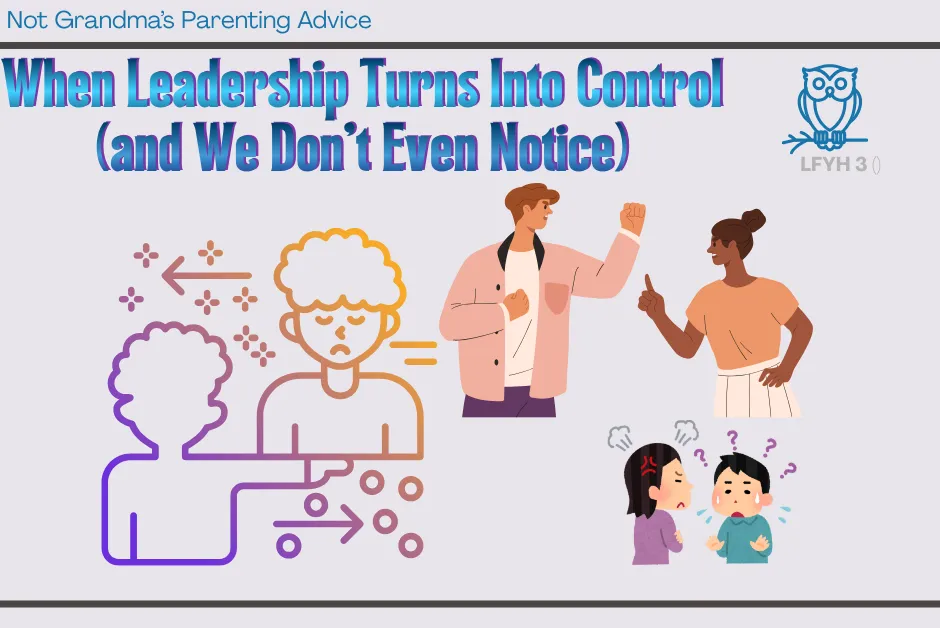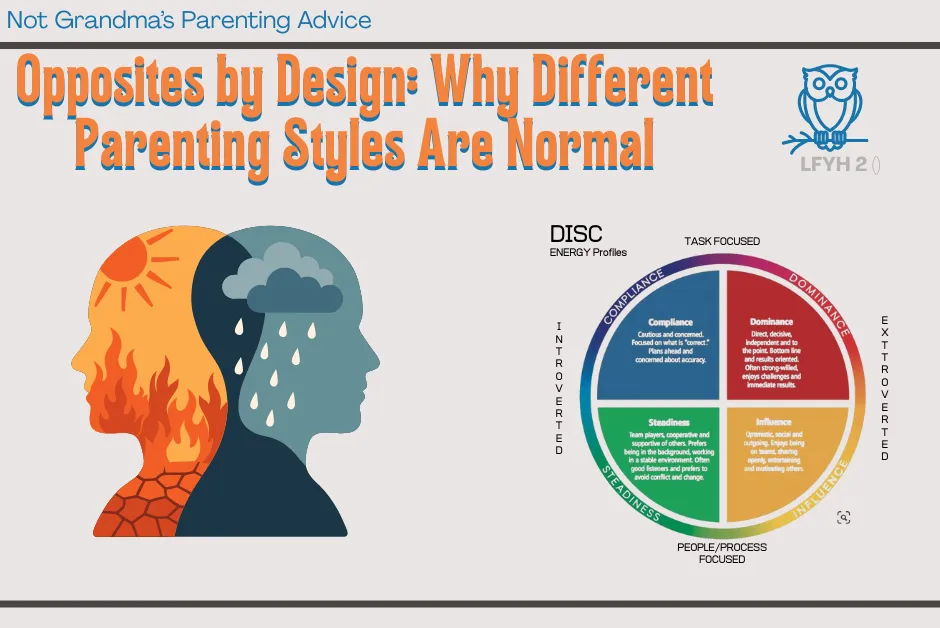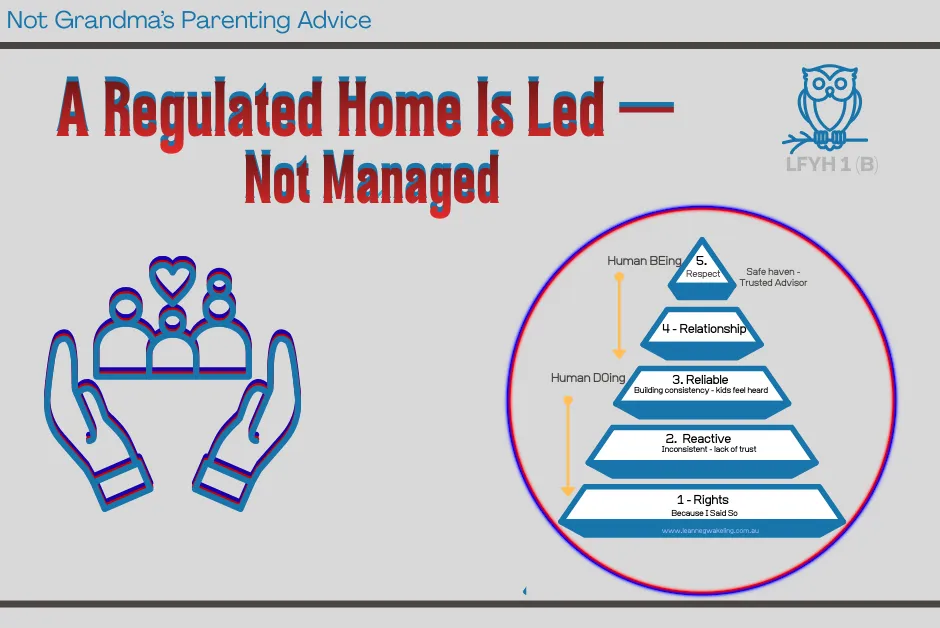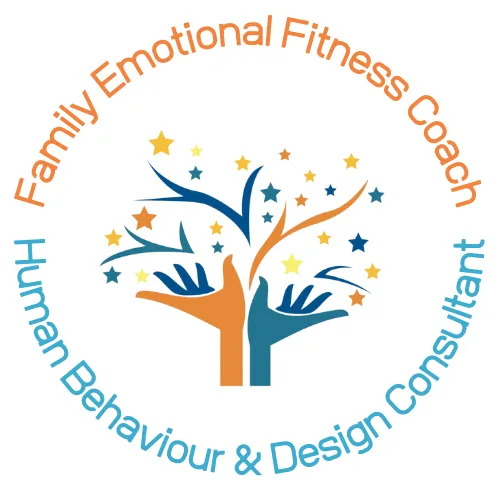Repair Builds Stronger Families Than Perfection Ever Could
Rewriting attachment begins with self-compassion. Real relationships grow from safety, not perfection — learning patience, empathy, and understanding helps build genuine, lasting connection.
When Leadership Turns Into Control (and We Don’t Even Notice)
Rewriting attachment begins with self-compassion. Real relationships grow from safety, not perfection — learning patience, empathy, and understanding helps build genuine, lasting connection.
Opposites by Design Why different Parenting Styles are Normal
Rewriting attachment begins with self-compassion. Real relationships grow from safety, not perfection — learning patience, empathy, and understanding helps build genuine, lasting connection.
A Regulated Home is Led - Not Managed
Rewriting attachment begins with self-compassion. Real relationships grow from safety, not perfection — learning patience, empathy, and understanding helps build genuine, lasting connection.
